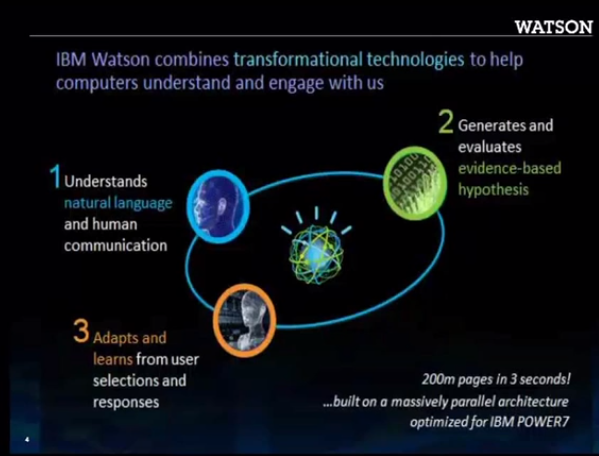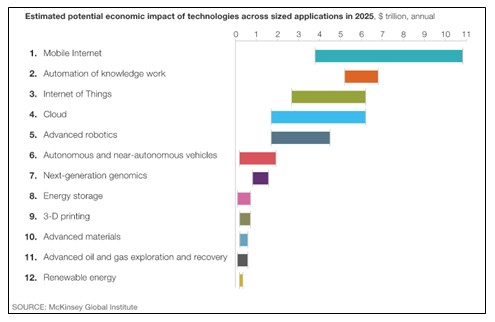Will Baby Watson Trigger a Cognitive Revolution?
Monday, June 17th, 2013Watson, IBM’s room-sized super computer that beat the world’s best human Jeopardy players in 2011 has given birth to a much smaller and more serious offspring. According to Bending the Knowledge Curve with IBM Watson, the new version is now just 9″ x 18″ x 36″ inches, weights about 100 pounds and is focused on answering questions in healthcare, finance, call centers and the government.
Will Watson reach and exceed top level human performance in these domains? There is reason to think so. For example, after just 18 months in healthcare, Watson is already showing promise towards completing a version of the US medical licensing exam. We could see big things in a 3-5 year time frame.
IBM believes success with Watson in multiple domains will trigger a new computing revolution, one focused on cognitive computing systems. Such systems will do for knowledge work what the early data oriented systems did for transactional work. The goal is not to replace human experts but to vastly amplify their reach and effectiveness. This is not an idle claim. Remember, you could consult with the current Watson and wipe out any other human player in the game of Jeopardy!
And IBM is not the only one that thinks technology is poised to bend the knowledge curve. McKinsey’s Global Research Institute calls Watson out as an example of one 12 technological disruptions (automation of knowledge work) that will transform life, business and the global economy. They estimate a multi-trillion dollar global impact in 2025 by technologies that automate knowledge work.
What does this mean for cognitive designers?
We should see a wide range of new options for shifting the cognitive load of knowledge work from humans to machines.
To gain more insight check out the free chapter in the forthcoming book, Smart Machines: IBM’s Watson and the Era of Cognitive Computing. The section, How Cognitive Systems Will Help Us Think, is especially relevant for cognitive designers. It is also worth your time to watch IBM Watson: The Science Behind the Answer. While this won’t make you an expert in deep analytics and natural language processing, it does give a good overview of the 4-steps the Watson uses to answer an open domain question. Something a computer has never been able to do before!

